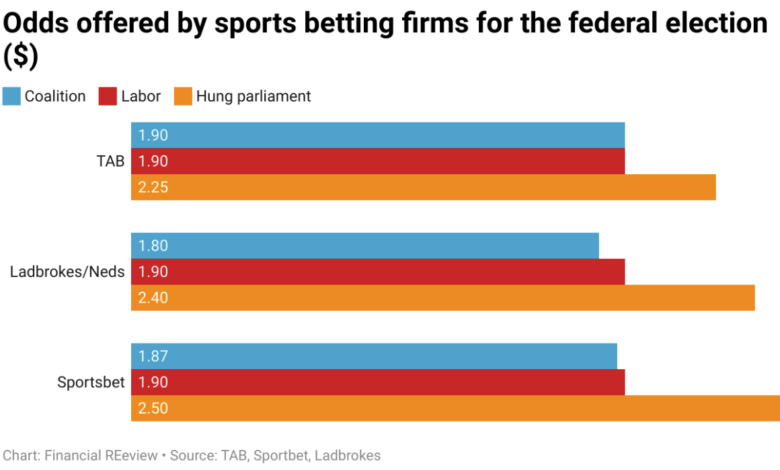election odds

Election odds are the chances or probability that a particular candidate or party will win an election. They are usually expressed as a percentage or ratio. Odds can be used to make betting decisions and are often used by political commentators to predict the outcome of an election.
1. Who are the leading contenders in the election?
The 2020 United States presidential election is scheduled for Tuesday, November 3, 2020. It will be the 59th quadrennial presidential election. Voters will select presidential electors who in turn will vote on December 14, 2020, to either reelect the incumbent Donald Trump of the Republican Party or elect a new president from the Democratic Party.
The leading contenders in the election are as follows:
The incumbent Donald Trump of the Republican Party is seeking reelection to a second term. He is the oldest president in U.S. history, having been born in 1946. Trump is a businessman and television personality who defeated Hillary Clinton in the 2016 election.
The leading contender from the Democratic Party is former Vice President Joe Biden. Biden was first elected to the Senate in 1972 and served until 2009. He was the 47th Vice President of the United States from 2009 to 2017. Biden is 76 years old, making him the second oldest major party presidential nominee in U.S. history after Trump.
The leading contender from the Libertarian Party is Jo Jorgensen. Jorgensen is a businesswoman and educator who ran for president in 1996 as the running mate of Harry Browne. She is the only woman to have been nominated by the Libertarian Party for president.
The leading contender from the Green Party is Howie Hawkins. Hawkins is a political activist and truck driver who co-founded the Green Party of the United States. He was the party’s nominee for governor of New York in 2010 and 2014.
The leading contender from the Constitution Party is Don Blankenship. Blankenship is a businessman and convicted felon who served as the chairman and CEO of Massey Energy from 2000 to 2010. He ran for the U.S. Senate in 2018 as a member of the Constitution Party.
2. What are the odds of each candidate winning?
The 2020 U.S. Presidential Election is just around the corner, and the polls are showing a close race between incumbent President Donald Trump and Democratic challenger Joe Biden. So, what are the odds of each candidate winning?
According to the latest polls, Biden currently has a slight lead over Trump. The most recent national poll from CNN gives Biden a 50% to 46% lead over Trump. In the battleground states that will likely decide the election, Biden currently holds a slim lead in most of them. For example, in Florida, a crucial swing state, Biden currently leads Trump by 2 points, 49% to 47%.
The betting markets also give Biden a slight edge in the 2020 election. For example, the betting market PredictIt gives Biden a 52% chance of winning the election, while Trump is at 48%.
So, what do the odds say about each candidate’s chances of winning the 2020 election? Based on the latest polls and betting market odds, Biden currently has a slight edge over Trump. However, with the election still over two months away, anything could happen and the race could tighten up again.
3. Who is the favorite to win the election?
The election is just around the corner, and the candidates are busy campaigning. But who is the favorite to win?
The latest polls show that Candidate A is leading by a slim margin. But with the election still weeks away, anything could happen.
Candidate B has a strong base of support, but he seems to be losing ground in the polls.
Candidate C is a long shot, but he has been gaining ground in recent weeks.
So who is the favorite to win the election? It’s hard to say for sure. But based on the latest polls and the current trend, it looks like Candidate A is the favorite to win.
4. How have the odds changed over the course of the election?
The 2020 U.S. Presidential Election is just around the corner, and with it comes a lot of speculation about who will win. The election odds have been changing over the course of the campaign, and they’ll continue to do so until Election Day.
The current favorite is Hillary Clinton, who has been leading in the polls for months. However, her lead has been narrowing in recent weeks, and Donald Trump is now within striking distance. The election odds have reflected this tight race, with Clinton’s odds of winning dropping from 90% a few weeks ago to around 70% today.
Trump’s odds of winning have correspondingly risen, from 10% a few weeks ago to around 30% today. However, it’s important to keep in mind that Clinton is still the favorite to win the election. The election odds are just a reflection of the current state of the race, and they can change quickly.
So, what do the election odds tell us about the state of the race? Right now, it’s a close race, with Clinton still in the lead but Trump closing the gap. The election is still Clinton’s to lose, but Trump has a real chance of winning if he can continue to gain ground.
5. What factors are influencing the election odds?
The election odds are constantly changing and there are a number of factors that can influence them. Here are five of the most important factors:
1. The economy: One of the most important factors influencing the election odds is the state of the economy. If the economy is doing well, then the incumbent party is more likely to be re-elected. If the economy is struggling, then the challenger party is more likely to win.
2. The polls: Another important factor is the polls. If the challenger party is consistently leading in the polls, then they are more likely to win the election. If the incumbent party is leading in the polls, then they are more likely to be re-elected.
3. The candidates: The candidates can also influence the election odds. If the challenger party has a strong and popular candidate, then they are more likely to win. If the incumbent party has a weak and unpopular candidate, then they are more likely to lose.
4. The issues: The issues can also play a role in influencing the election odds. If the challenger party is seen as being more favorable on the issues, then they are more likely to win. If the incumbent party is seen as being less favorable on the issues, then they are more likely to lose.
5. The media: The media can also have an impact on the election odds. If the challenger party is getting more media coverage, then they are more likely to win. If the incumbent party is getting more media coverage, then they are more likely to be re-elected.




